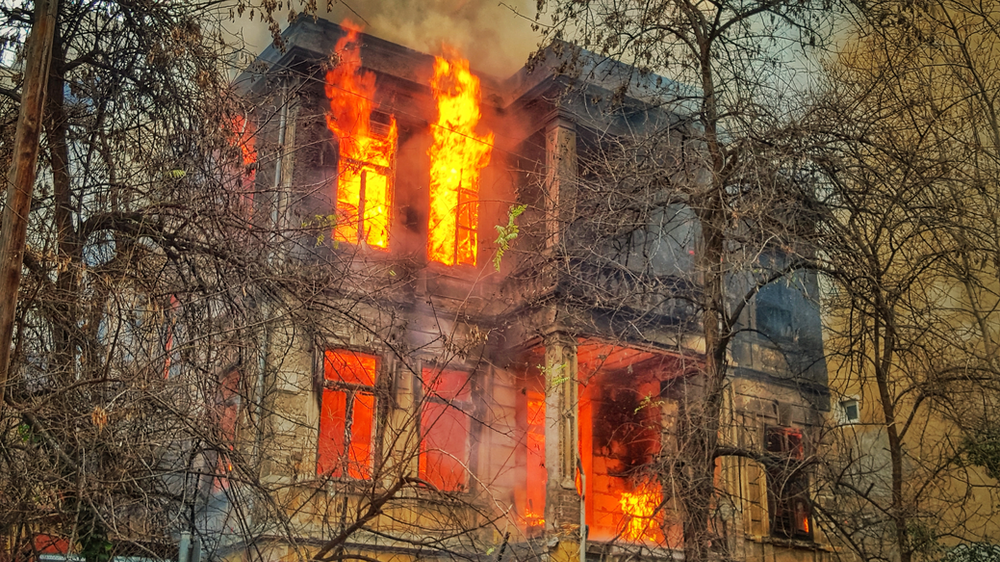An estimated 346,800 home fires occur every year in the US. These unexpected fires can quickly grow out of control and have devastating effects. Taking the proper fire precautions at home can help prevent the fire before it starts.
Common Causes of House Fires
1. Cooking
Cooking is the leading cause of nearly half of home fires. Unattended food in the oven or stove can burn and catch fire. Grease fires can occur when your cooking oil becomes too hot. Check your food regularly and do not leave the home without turning off the stove or oven. Keep your stovetop free of anything flammable, such as wooden utensils or oven mitts.
2. Candles
Burning candles left unsupervised or too close to flammable items can cause a fire that can spread quickly. Always extinguish a candle when leaving the room and keep the area around the candle clear. It is recommended that candles should not be burned for more than four hours. You should also avoid burning the wax to the very bottom.
3. Electrical Systems and Devices
Overloaded power strips or wiring issues can cause a spark that results in an arc fault or electrical fire. An arc fault is when frayed cords or faulty wiring cause intense hot sparks. Signs of faulty wiring include damaged wiring, outlet discoloration, burning odors, and blown fuses. Protect your home against an electrical fire by having a professional electrician inspect your home and handle any new wiring work.
4. Heating Equipment
Heating equipment caused 14% of home fires from 2014 to 2018. House fires can spread from fireplaces without proper maintenance. Use a glass or metal screen for your fireplace. Furnaces and chimneys should be professionally inspected and cleaned each year to prevent the buildup that causes fires.
5. Smoking
Smoking indoors can lead to an accident that causes a fire, such as falling asleep while smoking or walking away from lit cigarettes. The best way to prevent a house fire from smoking is to smoke outdoors. Never smoke around medical oxygen, it can explode if a flame is nearby. Put cigarettes out completely in an ashtray or bucket with sand.
6. Holiday Decorations
Fires during the winter holidays are often caused by a dried-out Christmas tree or lit fireplaces. Make sure your tree stays watered and do not leave the decorative lights on for too long. Overloading an outlet or connecting too many strands of lights can also be a potential fire hazard.
Home Safety Tips
As a renter or homeowner, fire safety should be one of your top priorities to prevent injuries, death, and property damage.
Update Smoke Alarms
Install smoke alarms inside each bedroom and hallway. Test them monthly by pressing the test button to ensure they are working. Malfunctioned alarms or ones with dead batteries will not notify you of a fire in your home. Their batteries should be replaced once a year. Each alarm should be replaced at least every 10 years. You can check their label to see when they were made.
Clean Dryer Ducts
Dryer lint can build up in the ducts and filters and cause a dryer fire. While you should clean your dryer filter after every use, it is not guaranteed to prevent a fire. The lint and dirt can build up and catch fire in the heating elements. Clogged dryer ducts can lead to wasted energy, longer drying times, and fires. The dryer ducts should be cleaned at least once a year to help prevent fires.
Keep Fire Extinguishers in the Home
Fire extinguishers are a great tool to have when preparing for a possible house fire but can only be used on certain types of small fires. Fire extinguishers should be present on each level of the home, including the kitchen and garage. Ensure all able household members know how to use the fire extinguisher in the event of a fire.
Get a Home Fire Inspection
During a fire safety inspection, the inspector will check for potential hazards and make sure proper precautions are in place to avoid house fires. They will check smoke alarms, fire extinguishers, and electrical wiring. A home fire inspection may reveal hazards that you weren’t aware of, allowing you to address and fix them.




